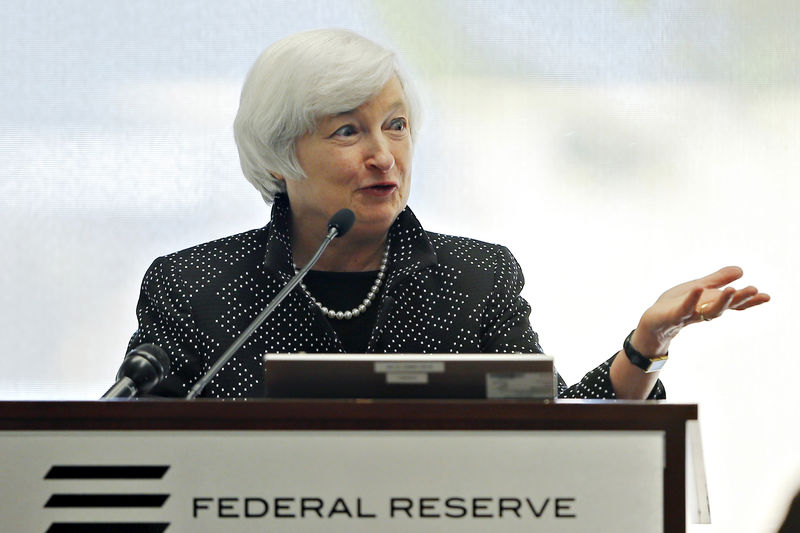Investing.com -- Pressed by lawmakers on Wednesday on whether the Federal Reserve could use negative interest rates as a tool to jumpstart the economy if vitally necessary, Janet Yellen responded that she is not aware whether the U.S. central bank has the legal authority to lower rates into subzero territory.
"I am not aware of anything that would prevent us from doing it, but I am saying that we have not fully investigated the legal issues," Yellen said in response to a question from Chief Deputy Whip Patrick McHenry (R, North Carolina).
McHenry's query centered around an August, 2010 memo which suggested that a law which granted the Fed authorization to pay banks interest on excessive reserves, might not provide it with the ability to charge interest. Yellen said Wednesday that the Federal Open Market Committee (FOMC) explored lowering rates below zero earlier in 2010 during its accommodative monetary policy cycle, but ultimately decided that it was not a "preferred tool," due to potential negative ramifications on Money Market funds.
Yellen's comments came on Wednesday in testimony before the U.S. House of Representative Financial Services Committee, the first of her two-day semi-annual appearance on Capitol Hill. On Thursday, Yellen is scheduled to testify before the Senate Banking Committee.
Later in Wednesday's hearing, Yellen was asked by Rep. Carolyn Maloney (D, New York) whether the Fed could consider reversing its current course by lowering interest rates if the economy experiences an adverse shock or if inflation remains stubbornly low. At a historic meeting in mid-December, the FOMC raised short-term interest rates for the first time in nearly a decade by lifting the target range on its benchmark Federal Funds Rate by 25 basis points to 0.25 and 0.50%. The FOMC followed by leaving the target rate unchanged at a meeting in late-January.
"I do not expect that the FOMC is going to be in the situation where it is necessary to cut rates," Yellen responded. "Let's remember that the labor market is continuing to perform well, (and) many of the factors holding down inflation are transitory. While there are always some risks of a recession, I think we want to be careful not to jump a premature conclusion about what is in store for the U.S. economy."
In late-January, the Bank of Japan rattled global markets with a surprising decision to implement a negative interest rate policy for the first time in central bank history. With the European Central Bank's deposit rate already in negative territory, it marked the first time two of the world's top three central banks held rates below zero at the same time. Economists have also explored whether central banks in China, Australia and Norway could join Sweden and Denmark in adopting the policy.
"In light of the European experience, it is something we should look at," Yellen said. "It isn't just a question of legal authority, it is also a question of could the plumbing of the payment system in the United States handle it. We have not determined that."
